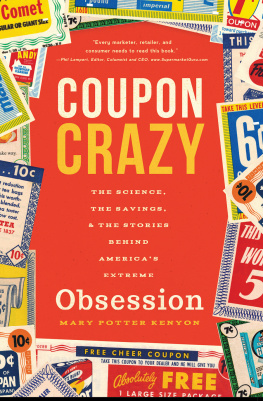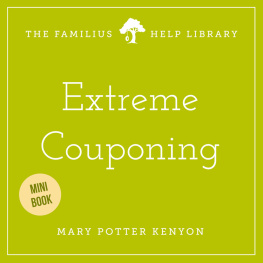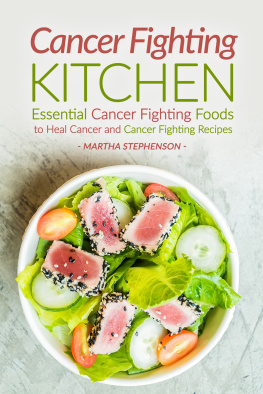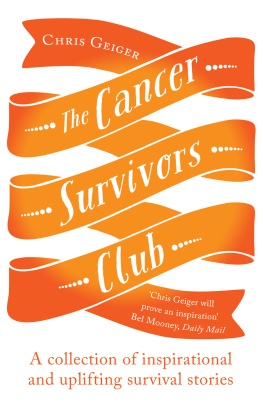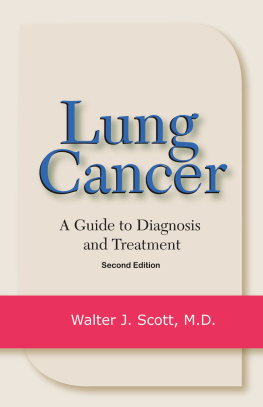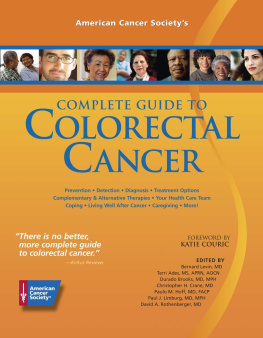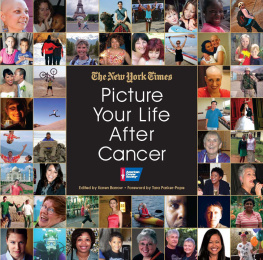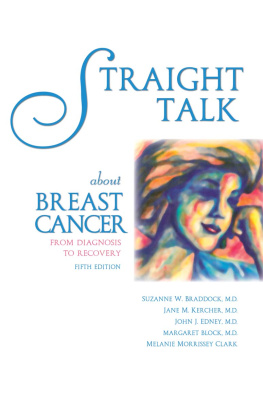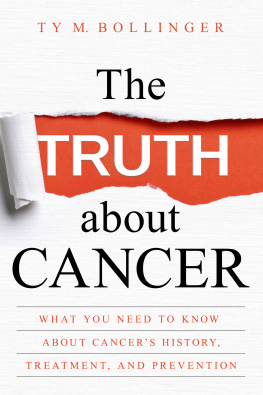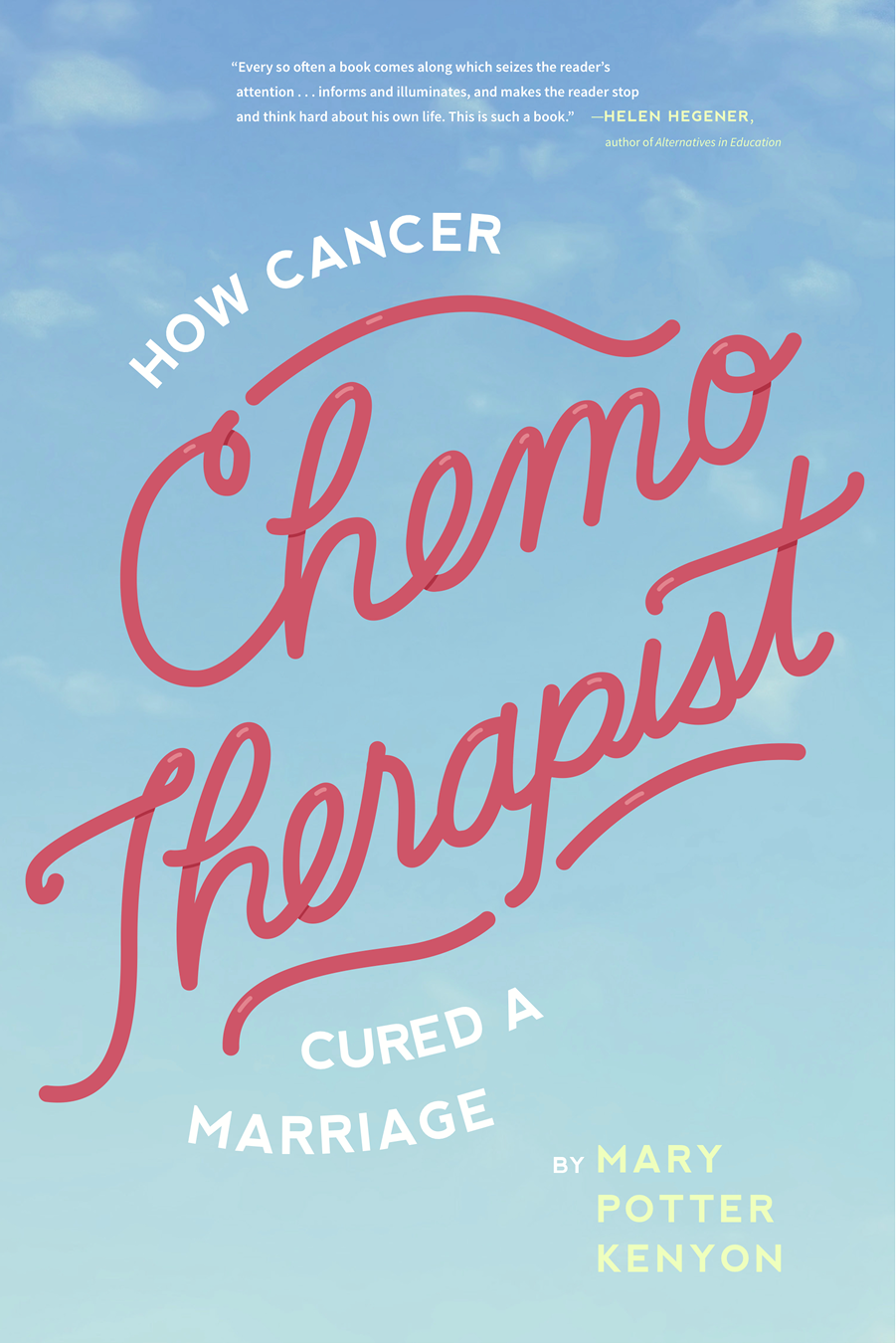This book is dedicated to the husband who taught me what it is to truly love a spouse; the siblings who supported us during Davids cancer journey; my friend Mary, who spent many hours editing the first draft of this manuscript; and the two women who helped me believe in myself and my story: Shelly Beach and Wanda Sanchez.
Praise for Chemo-Therapist
Mary Potter Kenyon brings transparency, honesty, humor, and hope to spouses and family members caring for loved ones with cancer. With deep insight, she shares that illness can unlock doors to deeper levels in our relationships and lead us to new discoveries about ourselves and others. Chemo-Therapist is a must-read book about living and loving for anyone who wants to discover how to find joy in each day.
Shelly Beach, Christy award-winning author of Ambushed By Grace: Help & Hope on the Caregiving Journey and Precious Lord, Take My Hand: Meditations for Caregivers
Mary Potter Kenyon tells a beautiful love story, describing her life as a mother of eight home-schooled children, struggling with financial problems, and the trauma of her husbands fight against oral cancer. She serves up strong illustrative details covered with a double topping of honesty. No sugar coating here. If youve ever driven past a strangers house and wondered what goes on behind closed doors, youll want to open this book. But be fully warned! Youll have trouble putting it down.
Elaine Fantle Shimberg, author of Blending Families and co-author of The Complete Single Father
This intensely personal book openly talks about the issues that families face when a spouse is facing serious cancer treatments. Marys frank writing about the emotional problems they faced as a family and as a couple should be required reading for couples facing any life and death medical condition. Finding the gift of a new relationship in the midst of stress and daily living will, I hope, inspire others to reach for the same goal.
Jean Reed, co-author with her husband, Donn, of Lifetime Learning Companion
Mary Potter Kenyon shares the story of what happened to her family when her husband David was diagnosed with oral cancer, and the story she weaves is compelling, enlightening, and utterly engaging. Every so often, a book comes along which seizes the readers attention and draws him into the life and the everyday concerns of another person, a book which informs and illuminates and makes the reader stop and think hard about his own life. This is such a book.
Helen Hegener, author of Alternatives in Education , The Homeschool Reader , and The Mantanuska Colony Barns
Foreword
In my work as a radiation oncologist, I spend a good deal of time preparing for my first official visit with my patients. To me, this visit will set the tone for what will eventually become a long-standing relationship. This relationship comes about because of an unwanted intruder (cancer) in a patients life. This intruder takes many patients and their families on a roller coaster of emotions, disappointments, and expectations. I still remember the day I first met David and Mary Kenyon. I remember exactly where we were when I had to discuss with them a plan for an aggressive, multifaceted treatment for David that would most likely change the fabric of their lives forever. Little did I know then how much they would teach me.
My mentors at the University of California, Los Angeles School of Medicine (UCLA) instilled in me the dictum that a physician must always learn from the patient, for patients have so much to teach us, if we will only listen. I hope that you, the reader, will listen to the honest, heartfelt, and sometimes painfully difficult experiences of a family struggling to make sense of what the diagnosis of cancer meant to them. For those of you with a diagnosis of cancer in your family, reading this book will reinforce for you that you are not alone in trying to come to terms with your worries, your struggles, and your feelings. Reading this book will show you that you have an inner strength you never believed possible.
Mary Kenyon addresses important questions about how a spouse, children, relatives, and friends relate to this new intruder in their lives. Cancer does not have to change everything in a negative way. Remarkably, there are positives as well. Mary lived every day of her life during her husbands treatment looking for the positive while fighting to bring happiness and stability into her familys life. I believe she succeeded. You can, too.
For physicians, I hope this book shines a light on what happens to our patients and their families when they leave our offices after that first important visit. I believe that this book can become a powerful tool in educating your patients (and you!), which, in turn, can only serve to strengthen the physician/patient bond. Within that bond lies the potential for success.
David and Mary Kenyon have been a blessing in my life. I have no doubt that they will be a blessing in your life, too.
Susanna R. Gordon, MD
Diplomate, The American Board of Radiology
Introduction
If you have picked up this book, you may have been diagnosed with cancer, will be caring for someone through cancer treatment, or know someone who has cancer. Before you read any further, I want you to know that my husband did not die from his cancer. Instead, he became a five-year survivor in June 2011a milestone year when the medical establishment labels those who have experienced cancer a survivor.
Why do I feel the need to point this out? When my husband was diagnosed with cancer in June 2006, I immediately began searching for books about the disease, particularly those that had been written from the viewpoint of a caregiver. Unfortunately, the majority of them ended with the spouse dying, something I was not willing to consider. I refused to read those books. If it is indeed true that a cancer patients outlook affects the eventual outcome, then why would anyone at the beginning of his or her cancer journey want to read about a cancer experience that ends in death?
If the reader gets nothing more out of this true story of caregiving, my hope is that they will at least see how good can come from something as inherently bad as cancer, and how the act of caring for a spouse can dramatically improve a marriage relationship. There were many times in the years after his grueling cancer treatment that my husband would glance over at me appreciatively, take hold of my hand, and announce: If it took cancer to get our marriage to this point, then I am glad for the cancer. If you are just starting down the path that David and I found ourselves on as a couple, I can assure you that, together, you can face whatever comes your way and come out on the other side of the experience stronger, closer, anddare I say it? Yeshappier.
The majority of this manuscript was written during the months of my husbands cancer treatment in 2006. I began writing while he recovered in the hospital from the invasive surgery that removed his tumor. Sitting next to his hospital bed, I held his hand with one of mine while I wrote with the other. I continued writing every Wednesday while I kept him company in the room where he received weekly chemotherapy infusions. I rose early every morning before my children woke up so I could write some more. Writing became my therapy: a way of working through the myriad of emotions cancer and caregiving brought into my life. Initially, I didnt know I was writing a book. By the end of Davids treatment, I realized Id written the very book I had been searching for upon his diagnosis.
Is This All There Is?
Big families are like waterbed stores. They used to be everywhere; now theyre just weird.


